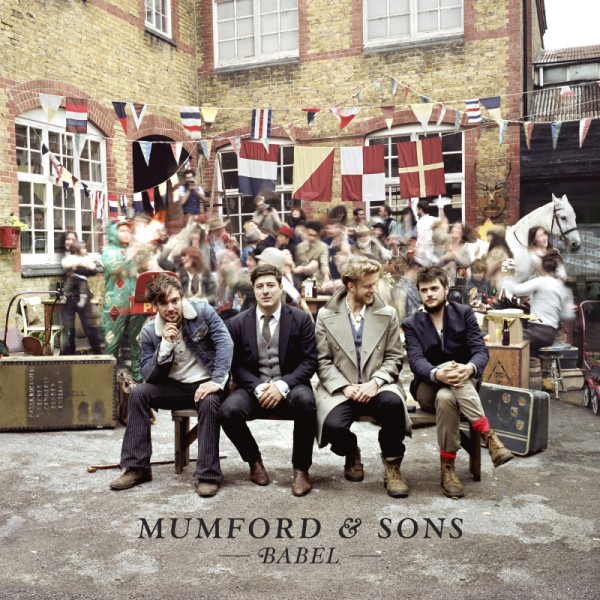“As young musicians get older and more successful, many lose the ability to understand and convey what’s it’s like to want something without having had it. If you’re looking for a unifying theory behind the proverbial “sophomore slump,” it’s often no more complicated than that: A successful first album is wired with want — with passion and aspiration — while its follow-up bears the weight of not only expectations, but also comfort.” –Stephen Thompson, NPR
Wh en Mumford and Sons released Sigh No More in late 2009, one would have been hard-pressed to find someone this side of the Atlantic who had heard of the band. Within a few months, however, one would be hard-pressed to find someone that hadn’t, and for good reason. The album was refreshing, with honest, relatable lyrics, catchy melodies, and interesting musicality. What made Mumford and Sons so great the first time around isn’t so much their music—though it was refreshing to see folk-rock on the radar for the first time in years. Rather, what made the album truly great was the obvious passion and sincerity that went into it.
en Mumford and Sons released Sigh No More in late 2009, one would have been hard-pressed to find someone this side of the Atlantic who had heard of the band. Within a few months, however, one would be hard-pressed to find someone that hadn’t, and for good reason. The album was refreshing, with honest, relatable lyrics, catchy melodies, and interesting musicality. What made Mumford and Sons so great the first time around isn’t so much their music—though it was refreshing to see folk-rock on the radar for the first time in years. Rather, what made the album truly great was the obvious passion and sincerity that went into it.
Fast forward two and a half years, and the folk-rock scene is no longer new. In between the release of Sigh No More and Babel, Mumford and Sons’ sophomore album, countless bands and singer-songwriters have edged into the folk-rock arena, making the same musical elements that launched Mumford into the mainstream almost the norm. Going mainstream isn’t a bad thing in and of itself but, unfortunately, the fame and popularity of Mumford and Sons seems to have had a negative effect on their artistry and music. Babel isn’t a bad album, it’s just a lazy one. Mumford and Sons attempted to keep their place by piggybacking on the popularity, success, and exact musical formula of their first album, but with so many artists jumping on the folk-rock bandwagon and putting out top-notch records, (think Ben Howard, the Lumineers, etc.) it now takes a bit more effort to produce an album that stands out from the crowd. Rather than growing as artists, risking a little, and taking their music to the next level Mumford and Sons produced an album that was musically identical to Sigh No More, but without the emotion, grit, and authenticity that made the record so relatable and easily loved.
Babel follows the same flow as Sigh No More, starting the album off with the rousing, hopeful, Winter Winds-esque choruses of “Babel” and “I Will Wait,” which is perhaps the only track on the album that stands out and shows some of the authenticity and urgency that made their first album so lovable. In some of the only sincere lyrics on the album, Mumford sings: “So I’ll be bold / As well as strong / And use my head / Alongside my heart.”
Next the album descends into the slower, more introspective ballads of “Reminder,” “Hopeless Wanderer,” and “Broken Crown,” which is musically indistinguishable from “Thistle and Weeds” off their first album. Both tracks follow the exact same musical formula, from the quietly fingerpicked intro to the unusually minor chord progressions to the dark brooding lyrics and swelling chorus halfway through. The album ends with the saccharine sweet, happily-ever-after “Not With Haste,” in which Marcus Mumford proclaims his sincerity and honesty: “This ain’t no sham / I am what I am.” It’s a nice sentiment, but if he has to prove that he’s being genuine, he probably isn’t being very genuine at all.
Overall, Babel is bland, and a disappointing sophomore release. Although it’s not a total flop — there are a few bright spots, especially in the beginning of the album — it’s clear that Marcus Mumford and the rest of his crew have spent more time touring and appealing to their ever-growing fan base than putting their heart and soul into crafting honestly great music.

